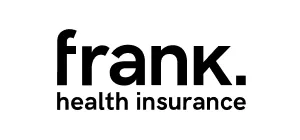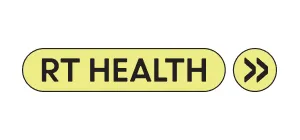What is hospital cover?
Hospital cover refers to a hospital-only health insurance policy that helps cover the costs of being admitted to hospital. When you have private hospital cover, you can typically choose to be treated as a private patient in a public hospital, or admitted to a private hospital for treatment.
What does hospital insurance cover?
Private hospital insurance usually covers, either in full or partially, theatre costs and hospital accommodation fees, including meals.
All hospital insurance products in Australia are classified into one of four standardised tiers: Gold, Silver, Bronze or Basic. These tiers are based on the minimum level of cover offered against the clinical categories (medical treatments and procedures covered in each tier) set by the Australian Federal Government. Gold is the highest level of hospital insurance and covers all clinical categories. Health insurers can also offer ‘Plus’ policies for Silver, Bronze and Basic categories, which allow them to provide cover for extra medical treatments that aren’t included by these categories as standard.
What does hospital insurance not cover?
Hospital-only insurance does not provide cover for the costs of ‘general’ treatments, such as dental care and optical, even if you receive these treatments in hospital. If you want to be covered for ‘general’ healthcare, you may want to consider a combined hospital and extras policy or an Extras-only policy if you don’t require hospital cover.
What are the benefits of hospital cover?
Hospital cover can let you choose which hospital you’re treated in, and which doctor or specialist treats you. It can also mean bypassing the lengthy waiting lists that can apply to elective surgery in the public health system.
While hospital cover may be an extra household cost to budget for, taking out cover before you turn 31 years old may help you avoid Lifetime Health Cover loading. For each year after you turn 30 that you don’t take out private hospital insurance, premiums become 2% more expensive, up to a set level (i.e. a maximum loading of 70% after 35 years without hospital cover). The rationale behind this is that if young, healthy people take up private health insurance, it will reduce some of the burden on the public hospital system.
What are the different hospital insurance product tiers?
Private Hospital Cover Product Tiers
✔️ – Indicates the clinical category is a minimum requirement of the product tier.
⭕ – Optional for the insurer to include (may be offered as additional clinical categories).
R – Restricted cover permitted (insurers are allowed to offer cover for the clinical category on a restricted basis*).
Clinical | Basic | Bronze | Silver | Gold |
|---|---|---|---|---|
Rehabilitation | ✔️ R | ✔️ R | ✔️ R | ✔️ |
Hospital | ✔️ R | ✔️ R | ✔️ R | ✔️ |
Palliative | ✔️ R | ✔️ R | ✔️ R | ✔️ |
Brain and | ⭕ R | ✔️ | ✔️ | ✔️ |
Eye | ⭕ R | ✔️ | ✔️ | ✔️ |
Ear, nose | ⭕ R | ✔️ | ✔️ | ✔️ |
Tonsils, adenoids and grommets | ⭕ R | ✔️ | ✔️ | ✔️ |
Bone, joint | ⭕ R | ✔️ | ✔️ | ✔️ |
Joint | ⭕ R | ✔️ | ✔️ | ✔️ |
Kidney and bladder | ⭕ R | ✔️ | ✔️ | ✔️ |
Male reproductive | ⭕ R | ✔️ | ✔️ | ✔️ |
Digestive system | ⭕ R | ✔️ | ✔️ | ✔️ |
Hernia and appendix | ⭕ R | ✔️ | ✔️ | ✔️ |
Gastrointestinal | ⭕ R | ✔️ | ✔️ | ✔️ |
Gynaecology | ⭕ R | ✔️ | ✔️ | ✔️ |
Miscarriage | ⭕ R | ✔️ | ✔️ | ✔️ |
Chemotherapy, | ⭕ R | ✔️ | ✔️ | ✔️ |
Pain management | ⭕ R | ✔️ | ✔️ | ✔️ |
Skin | ⭕ R | ✔️ | ✔️ | ✔️ |
Breast surgery (medically necessary) | ⭕ R | ✔️ | ✔️ | ✔️ |
Diabetes management (excluding | ⭕ R | ✔️ | ✔️ | ✔️ |
Heart and | ⭕ R | ⭕ | ✔️ | ✔️ |
Lungs and chest | ⭕ R | ⭕ | ✔️ | ✔️ |
Blood | ⭕ R | ⭕ | ✔️ | ✔️ |
Back, neck and spine | ⭕ R | ⭕ | ✔️ | ✔️ |
Plastic and reconstructive surgery (medically necessary) | ⭕ R | ⭕ | ✔️ | ✔️ |
Dental surgery | ⭕ R | ⭕ | ✔️ | ✔️ |
Podiatric surgery (provided by podiatric surgeon) | ⭕ R | ⭕ | ✔️ | ✔️ |
Implantation of hearing devices | ⭕ R | ⭕ | ✔️ | ✔️ |
Cataracts | ⭕ R | ⭕ | ⭕ | ✔️ |
Joint replacements | ⭕ R | ⭕ | ⭕ | ✔️ |
Dialysis for chronic kidney failure | ⭕ R | ⭕ | ⭕ | ✔️ |
Pregnancy and birth | ⭕ R | ⭕ | ⭕ | ✔️ |
Assisted reproductive services | ⭕ R | ⭕ | ⭕ | ✔️ |
Weight loss surgery | ⭕ R | ⭕ | ⭕ | ✔️ |
Insulin pumps | ⭕ R | ⭕ | ⭕ | ✔️ |
Pain management with device | ⭕ R | ⭕ | ⭕ | ✔️ |
Sleep studies | ⭕ R | ⭕ | ⭕ | ✔️ |
Source: Privatehealth.gov.au. *Restricted benefit means you’re partially covered for hospital costs as a private patient in a public hospital. Privatehealth.gov.au warns insurers pay only a limited amount for private hospital costs with restricted cover and you may face substantial out-of-pocket expenses.
What is the difference between hospital cover and extras cover?
Hospital cover insures you for the costs of receiving treatment and staying in hospital as a private patient, including theatre costs and hospital accommodation fees. Examples include orthopaedic surgery (such as knee or hip replacement), eye surgery (such as cataracts) or gastrointestinal tests (such as an endoscopy or colonoscopy). Exactly what you’re insured for will depend on your level of coverage and your policy's tier (i.e. Gold, Silver, Bronze, Basic).
Extras health insurance provides cover for ‘general’ treatments and services from medical and allied health professionals not typically subsidised through Medicare. Examples include dental treatment, physiotherapy, optical devices such as glasses, or remedial massages. Unlike hospital cover, there’s no distinct government standardised level of cover for Extras insurance products.
Can hospital cover help you save on the Medicare Levy Surcharge?
Hospital cover can also offer tax benefits in some cases. Without hospital cover in place, you could be charged the Medicare Levy Surcharge (MLS), which as of the the 2025-26 tax year, applies if you earn over $101,000 as a single or $202,000 as a family (plus $1,500 for each dependent child after your first one) and don’t have an appropriate private health insurance policy in place.
The MLS can be levied between 1% and 1.5% of your taxable income depending on your personal situation. It comes on top of the 2% Medicare levy, and it doesn’t buy you any additional health services. The Australian Taxation Office (ATO) says the MLS is designed to “encourage people to take out private patient hospital cover and use the private hospital system to reduce demand on the public system.”
The ATO also states if you want to avoid paying the MLS, you should consider taking out the appropriate level of private hospital cover for yourself, your spouse and your dependents. An appropriate level of cover must have a maximum excess of $750 for singles or $1,500 for families/couples.
Is hospital cover worth it?
The value of hospital cover will depend on your individual circumstances, as well as the costs and benefits of different private health insurance policies. Being insured is always a personal choice.
Some questions you may want to consider are:
- Do you have an existing health condition you wish to cover?
- Do you have any major family history of particular health conditions that could warrant hospital cover?
- Do you prefer being able to choose your own doctor, or specialist, and have more of a say over your treatment plan?
- Does staying in a private room while in hospital appeal to you?
It’s also always best to read the Private Health Information Statement (PHIS), Target Market Determination (TMD) and other applicable documentation when considering an insurance policy.





































